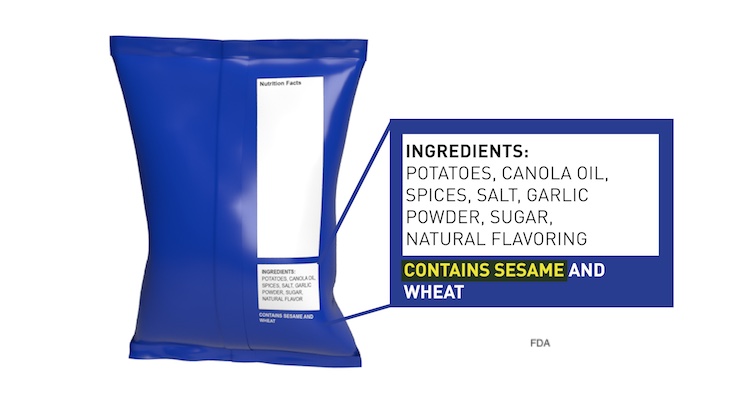Sesame is a food allergen, according to the FDA. As of January 1, 2023, sesame allergen labeling is required on all food packages. But there is a lag time.

Sesame joins the eight other major food allergens: eggs, milk, soy, finfish, shellfish, peanuts, tree nuts, and wheat. These ingredients must, by federal law, be listed on ingredient labels and any food that includes them must also have an allergen statement.
The transition period, however, means that people who are allergic to sesame must still be careful. Food products that are already in the store, in stock, or in transport to stores do not need to have the label yet. And since some foods have a long shelf life, it could be months before all foods that contain sesame actually have an allergen statement.
It’s also important to note that manufacturers can, and do, change the formulation of their products often and without notice. So if you are allergic to any food or ingredient, you should carefully read the label before you buy that product and eat it.
On a label, the name of the food allergen must appear, either as itself, or if it is part of another ingredient. For example, flour can contain wheat, natural flavor can include sesame, and lecithin can contain soy. So a food label may look like this: lethicin (soy) or flour (wheat). After the ingredient list, a “contains” statement must appear: “Contains sesame.”
This law applies to all packaged foods. Some other foods, such as bread made in a store, may not have those labels. if you are concerned, ask.
Sesame became the ninth major food allergen after the FASTER Act was passed in 2021. That stands for Food Allergy Safety, Treatment, Education, and Research. The law covers the most common food allergens that cause most serious food allergy reactions in this country.




